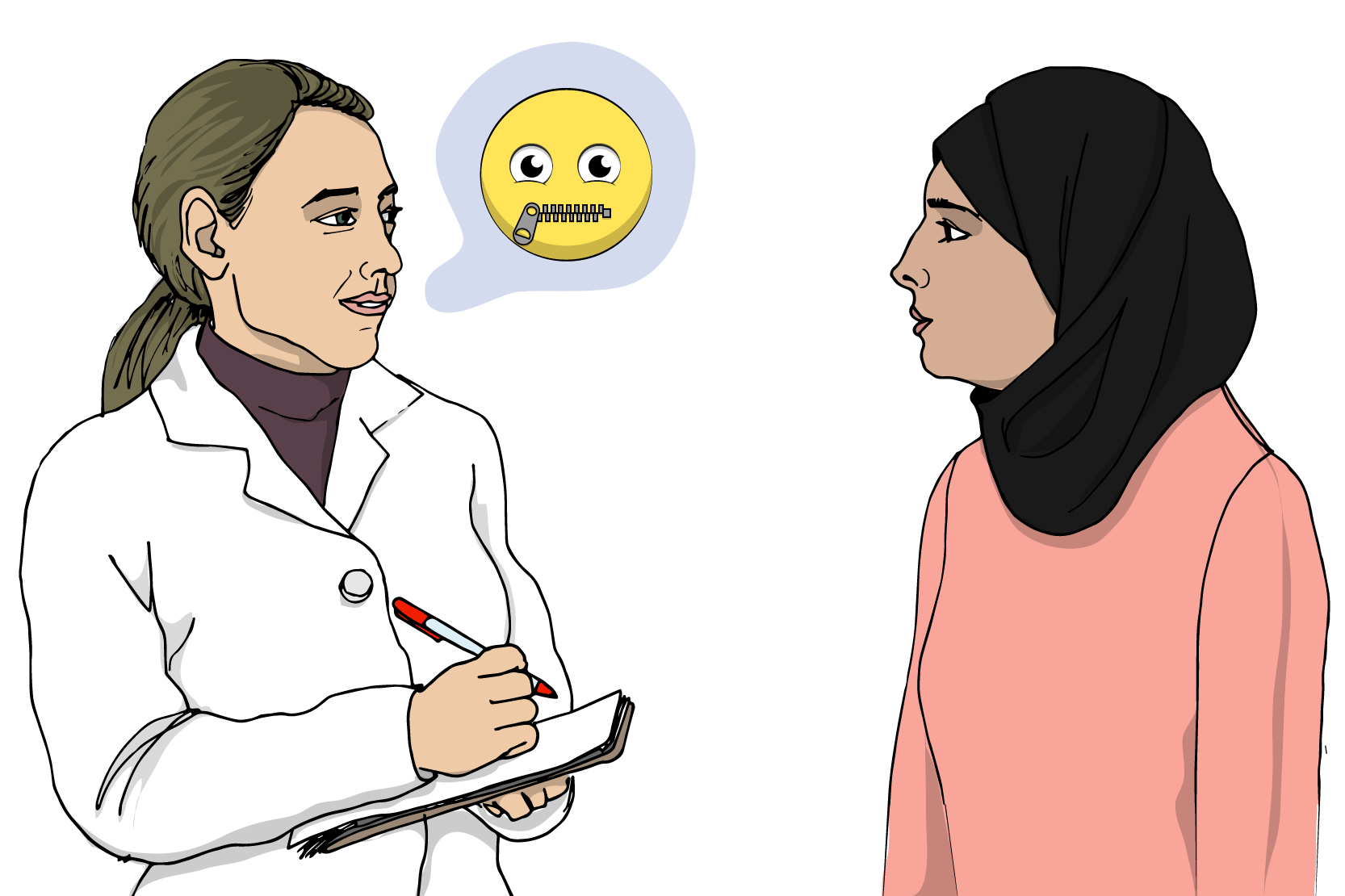Confidentiality and Professional Secrecy
Sekretess och tystnadsplikt - engelskaThe professionals that you have contact with at a health clinic are not allowed to talk about you with anyone or release written information from the clinic about you to anyone. This is called confidentiality and professional secrecy. It applies to everyone who works in health care.

Confidentiality means that health care staff members are not allowed to share information about you with other people. Confidentiality is part of professional secrecy. Sometimes staff need to break patient confidentiality and tell or give information about you to others. You can read more about that below.
Everything you say and everything that is written about you in your medical records is confidential. Confidentiality applies to both people and government agencies. Staff who do not comply with the Secrecy Act are guilty of committing a crime and can be prosecuted in a court of law.
All staff you meet have an obligation of confidentiality
All staff who work in health and medical care must follow confidentiality rules and regulations. This includes office staff and interpreters as well. They are not allowed to reveal any information about you.
The member of staff you have contact with is only allowed to talk with other staff members and professionals about you, if this necessary for your treatment. Only the professionals who are a part of your care team are allowed to read your medical records.
Health care professionals are not allowed to contact other government agencies regarding you if there is a possibility that this could harm you. This means that you can seek health care, even if you do not have a residence permit. Health care professionals are not allowed to tell the police where you are.
Can confidentiality be broken?
In some situations, staff may break patient confidentiality and share information about you with others. Here are some examples:
- When you agree to this and say that it is okay. You can tell the staff what they are allowed to say. For instance, if you are a patient in a hospital and someone you know calls the hospital regarding to you.
- If you are under 18 years of age, health care professionals may need to contact the adults responsible for you. This could be because you need to be admitted to hospital to receive further treatment.
- If you are under 18 years of age and health care professionals believe that you have abused in some way. For example, if you have been subjected to violence or an act which is harmful to your health. In such cases, the staff must contact the social services so that you can receive help and support. Health care professionals are legally required to do this.
- Health care professionals may contact the police if they believe you have committed or are the victim of a serious crime.
When do my parents/legal guardians have the right to be given information?
If you are under 18 years of age, the adults who are responsible for you have certain rights to receive information about you and to be involved in deciding on certain things. This depends on how old you are and what the situation involves. Whether the situation involves important and serious things. For example, they may need to know if it concerns major medical investigations, care or treatments. But the adults will not be contacted or informed if that could put you in danger.
You can talk to someone you trust if you cannot get support from the person who is your parent/guardian. For example, if you want to have an abortion and do not want to tell your parents. An alternative could be talking to the school counsellor or another adult who is able to provide you with support.
You can ask at a clinic if you have any questions regarding confidentiality.